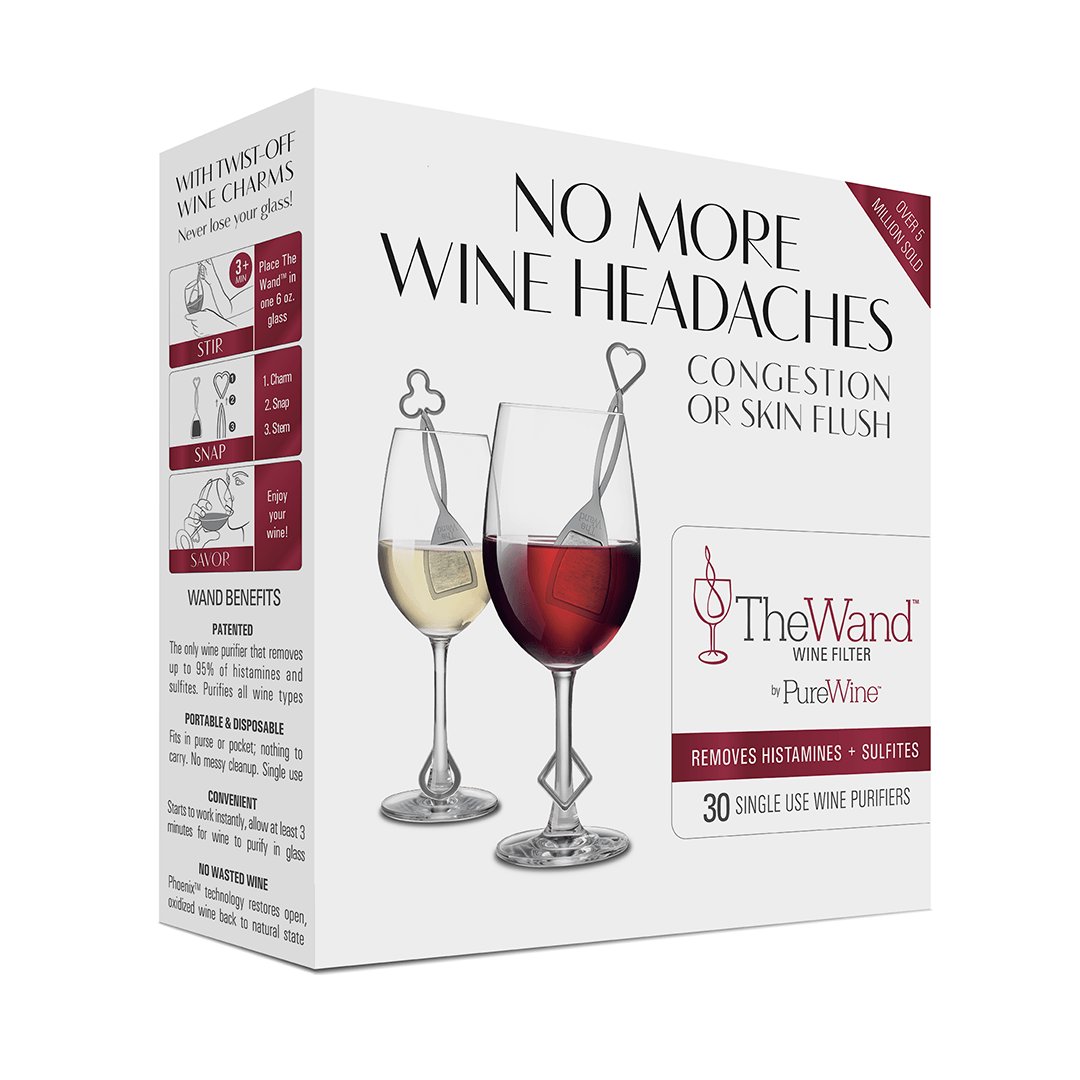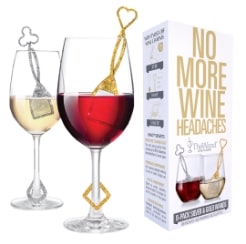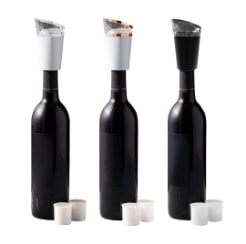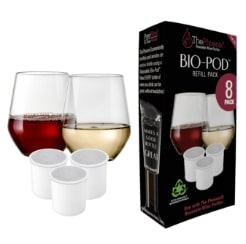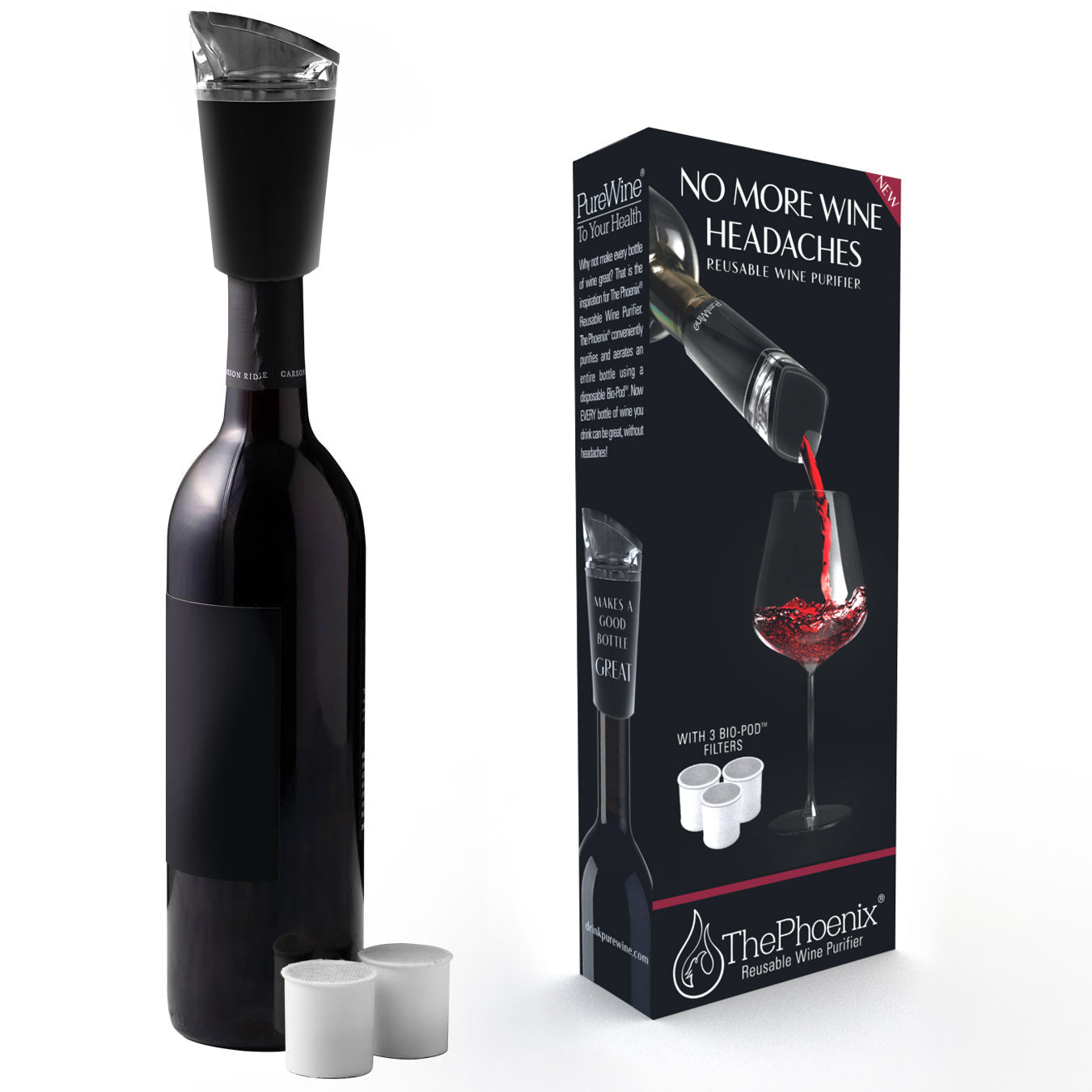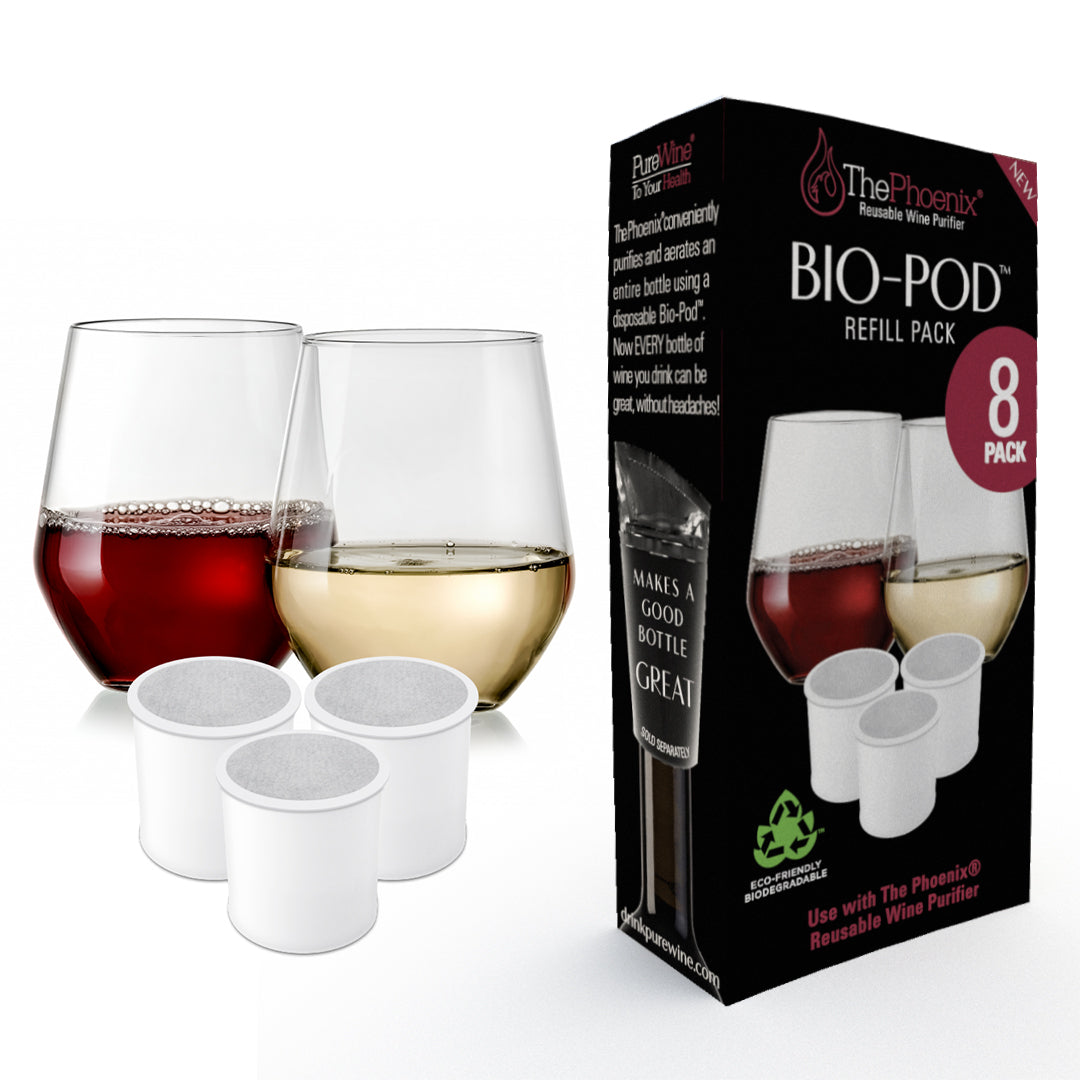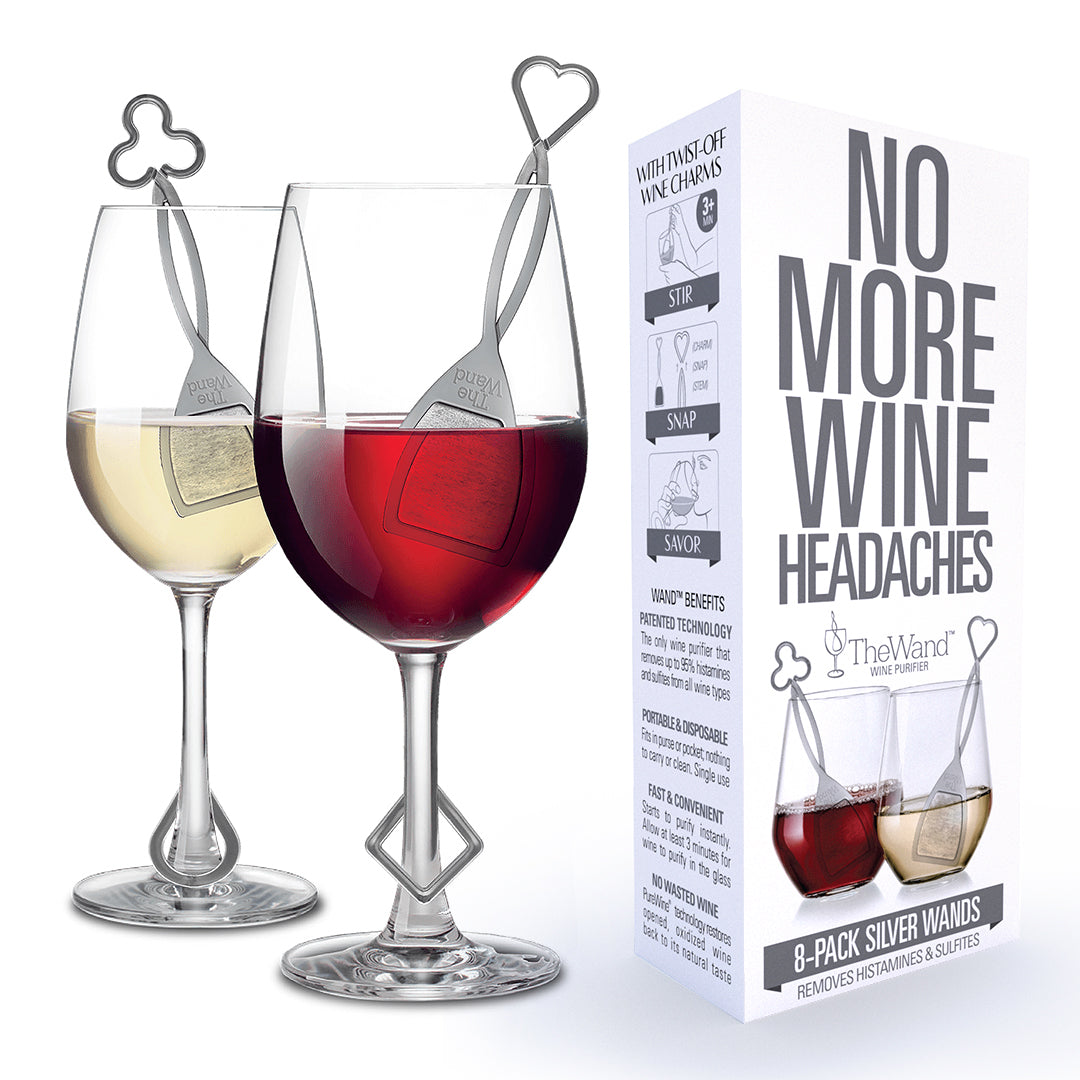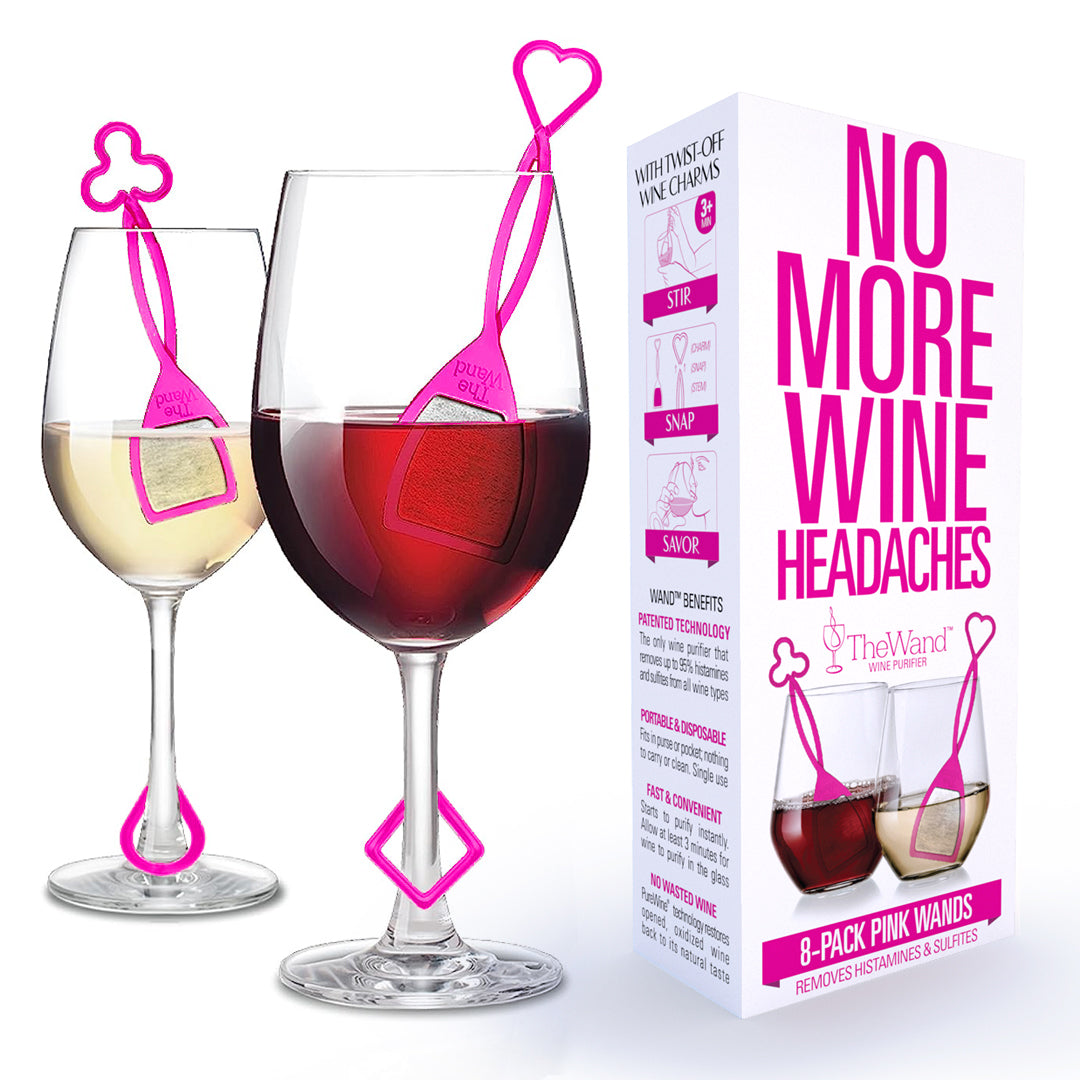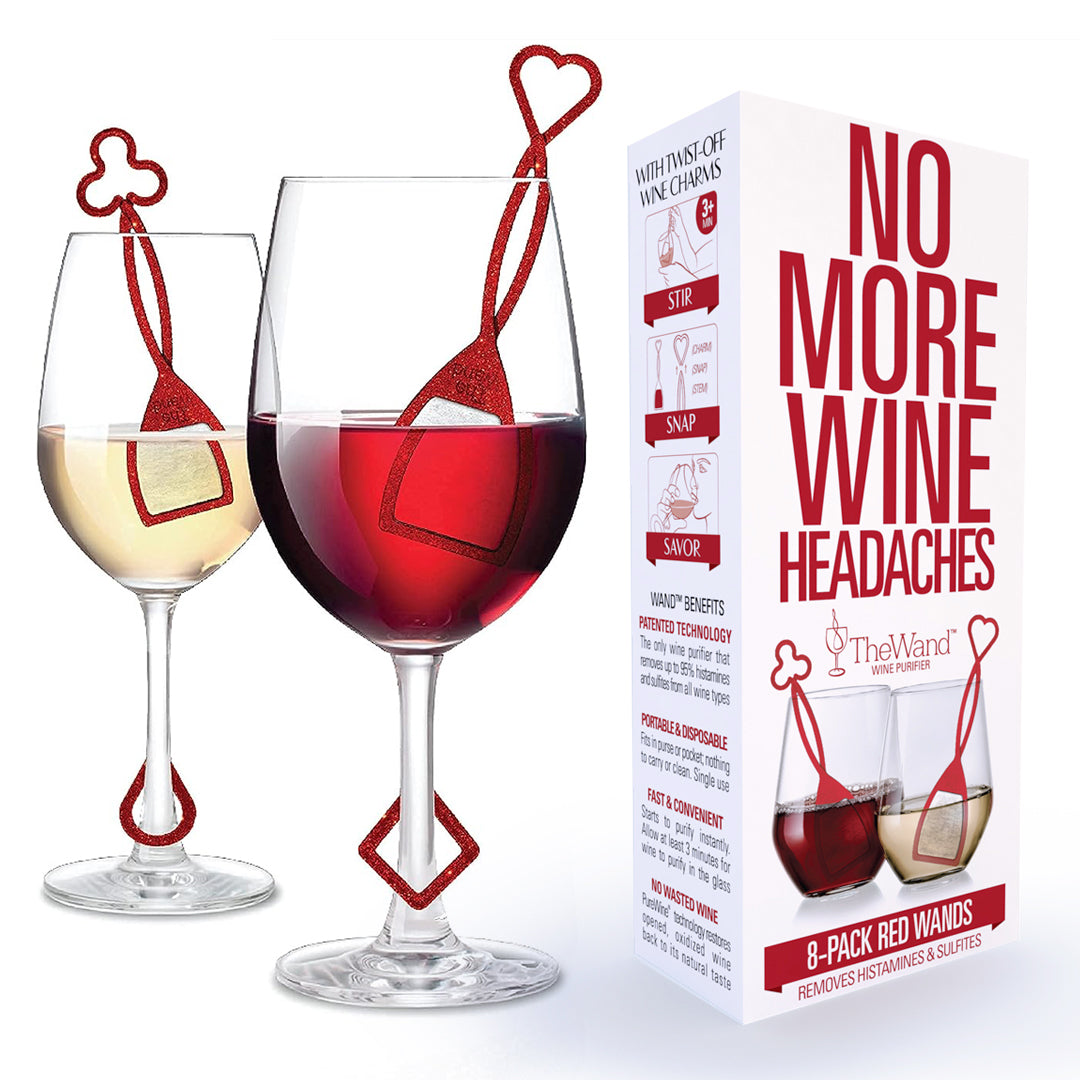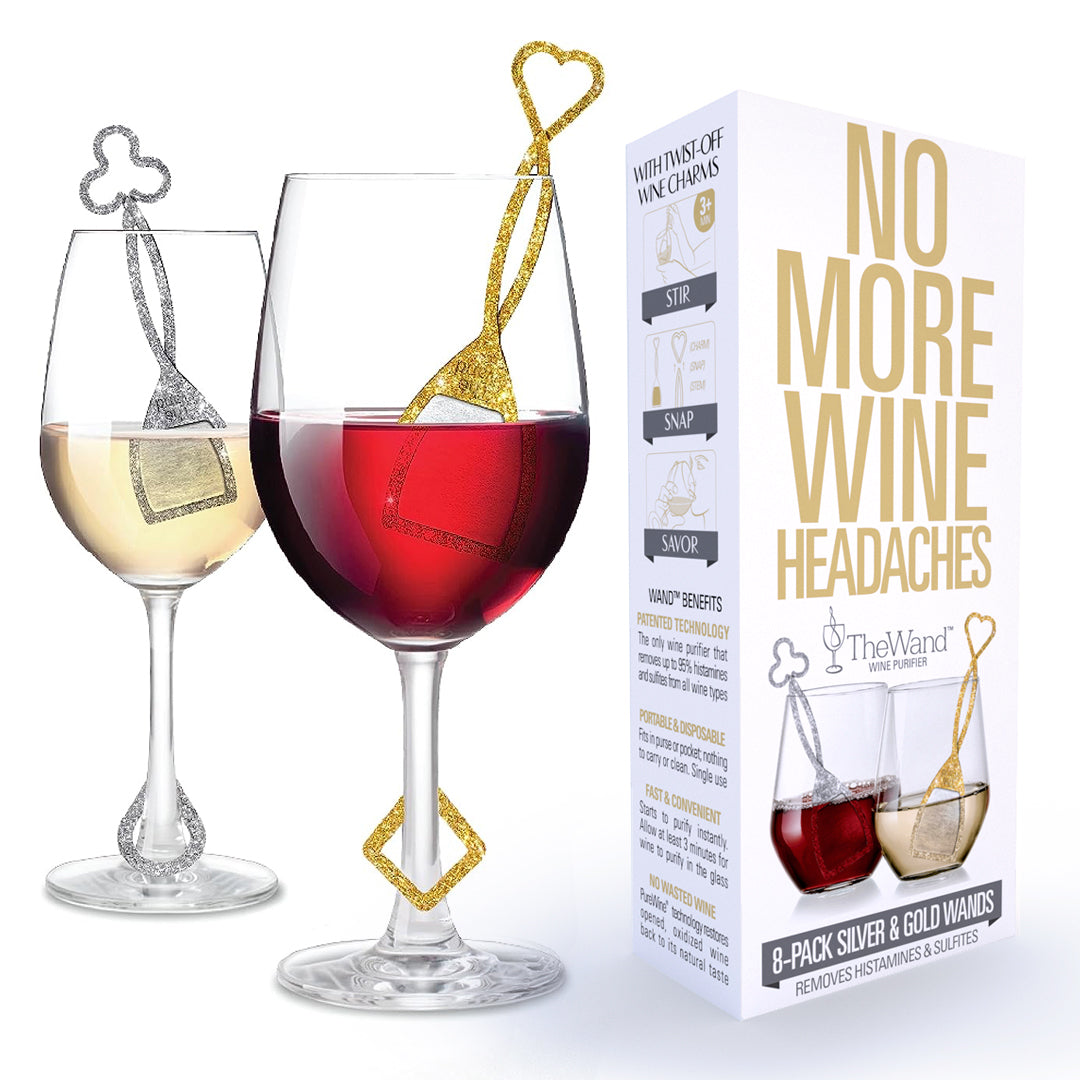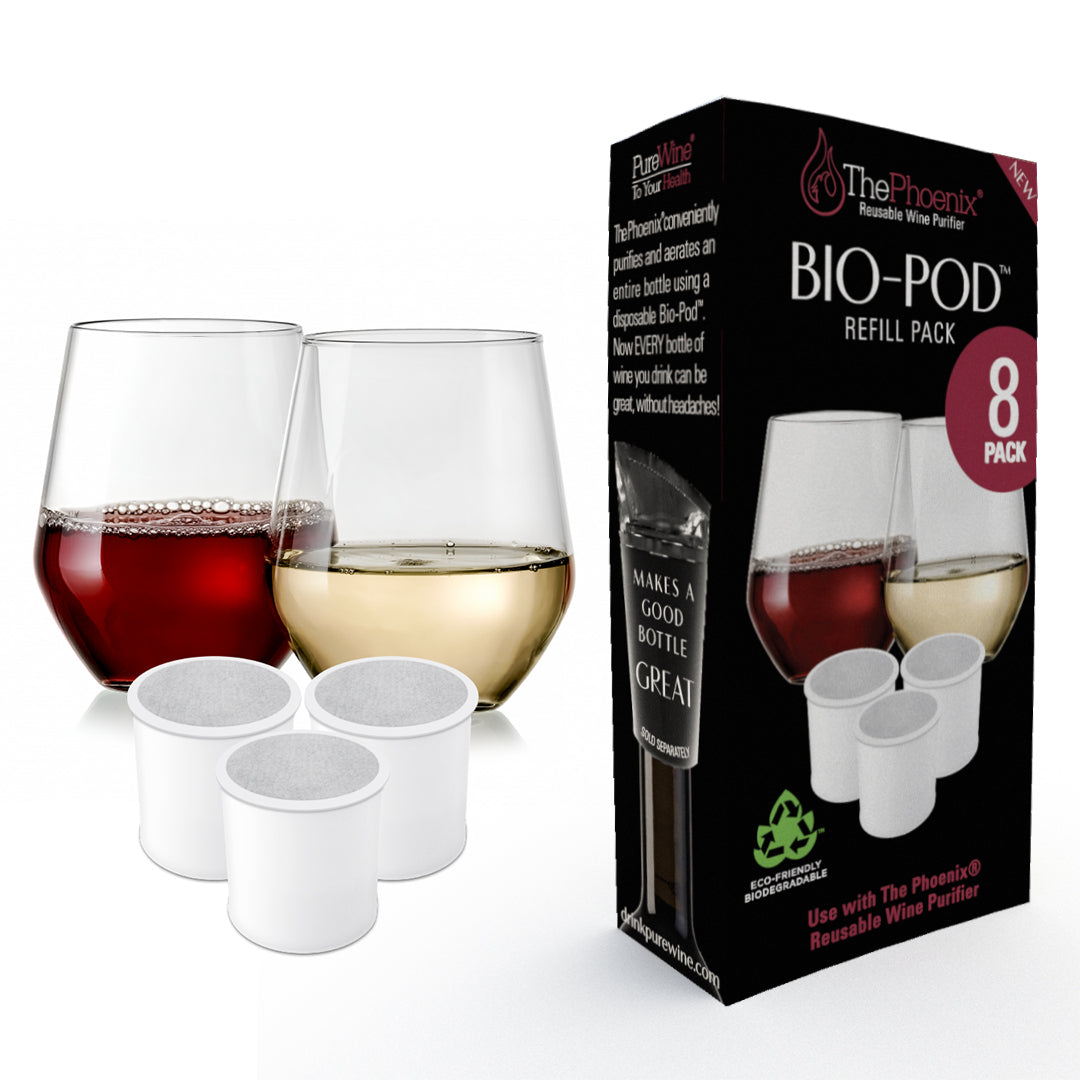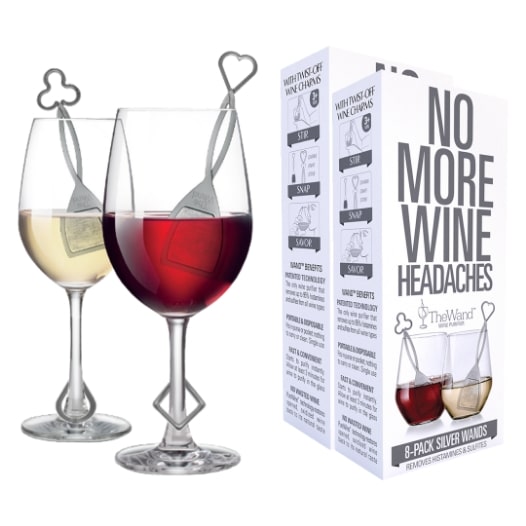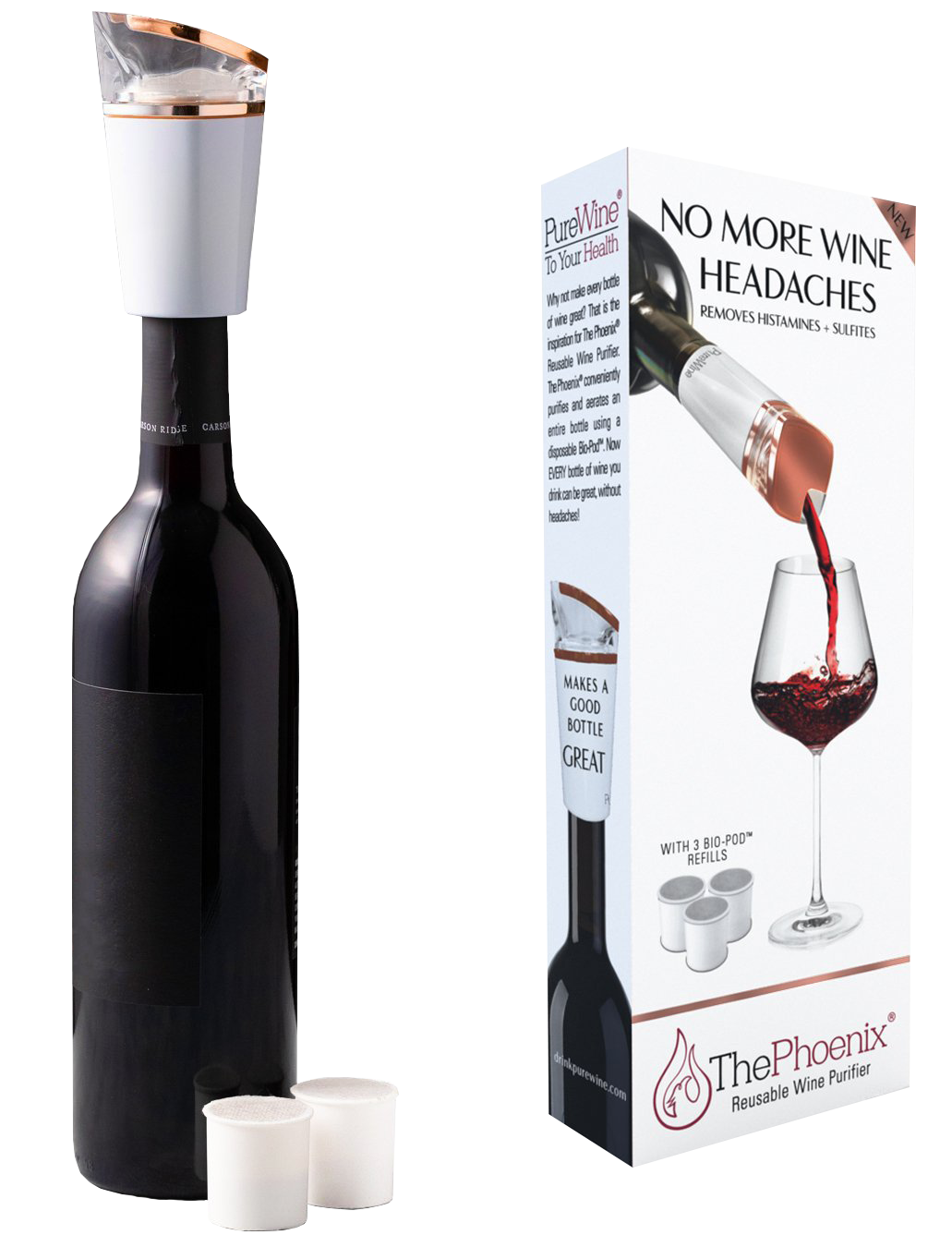Wine Hangover Cures – Busting Myths, Examining the Evidence
Below we are going to answer all your questions about wine hangovers. However, before we talk specifically about a wine hangover, let's look at hangovers in general.
What is a Hangover?
Alcohol hangovers are something almost every adult has experienced at least once in their lives. For a large percentage of the population these side effects can be quite severe and debilitating even after just 1 to 2 drinks. Hangovers are characterized by a wide range of symptoms – fatigue, lethargy, a lack of concentration, headache, thirst and dry mouth, nausea and vomiting, poor sleep, heightened sensitivity to light and sound, dizziness, and muscle aches, etc.
How Long Do Hangovers Last?
Hangovers can last up to 24 hours after consumption of alcohol and the cause of an alcohol hangover is not completely understood. Interestingly, although hangovers occur during the consumption of alcohol (specifically ethyl alcohol) hangover symptoms begin to appear when the blood alcohol level is relatively low and the symptoms peak in severity when the blood alcohol level reaches 0.15 percent1. The negative impact of alcohol hangovers cannot be overstated. Indeed, hangovers result in significant decreases in productivity and workplace performance associated with daytime sluggishness.
Several mechanisms have been proposed by researchers to account for alcohol hangovers in association with predisposing factors that can make the hangover more intense and prolonged:
What Causes A Hangover to Be Worse?
- Dehydration
- Imbalances of electrolytes (e.g., sodium, potassium, calcium, magnesium, and phosphate)
- Gastrointestinal disturbances
- Low blood sugar
- Sleep rhythm disturbances
- Concurrent use of other drugs (e.g., nicotine)
- Deficiencies in certain enzymes that metabolize alcohol
Hangover and Dehydration
One of the most commonly held explanations for a hangover is dehydration. Alcohol causes the human body to directly increase urine output by inhibiting a hormone known as vasopressin which is produced in the brain (hypothalamus). The consumption of just 50g of alcohol dissolved in 250ml of water (equivalent to about 4 standard drinks) can result in the elimination of up to 1000 ml of water over several hours2.
However, dehydration alone cannot account for the symptoms of hangover. This is because even consumption of small amounts of wine (undiluted) can cause hangover symptoms in individuals of large builds. It is very likely that the commonly experienced wine hangovers are caused by histamine compounds (aka biogenic amines) that are naturally produced in wine during the fermentation process. Indeed, full-bodied red wines usually contain relatively high levels of biogenic amines which interact with the histamine receptor network (H1-H4) throughout the body. These biogenic amines include histamine, putrescine, tyramine, cadaverine, among others. During wine consumptions, biogenic amines are rapidly absorbed into the body through the lining of the mouth and gut to produce the hangover symptoms like headache, skin flushing and GI distress.

Spirit Hangovers Vs. Wine Hangovers
Although alcohol hangovers are extensively described in the literature, it is important to make a distinction between hangovers from distilled spirits like whiskey and vodka and those hangovers occurring with wine. Not all hangovers are the same. Our analysis at PureWine has revealed considerable differences between these two classifications of alcoholic beverages. In fact, distilled spirits contain congeners such as methanol, acetone and aldehydes which are produced during mash fermentation from grains such as corn, wheat, barley, rye and subsequent distillation to produce the alcoholic beverage. Unlike wines, most distilled spirits do not contain significant levels of histamines or sulfites. But botanical spirits (vermouth, gin, Jaegermeister, absinthe, flavored vodkas, eaux-de-vie, akvavit, arak, pastis and ouzo, etc.) have oils and essences that can cause significant side effects for some people.
ALDH and Hangovers
Another cause of an alcohol hangover (both spirit and wine) is a deficiency of a specific enzyme – aldehyde dehydrogenase (ALDH). Ethanol in spirits and wines is metabolized primarily by alcohol dehydrogenase (ADH) into acetaldehyde. Acetaldehyde is a carcinogen which causes damage to DNA and is rapidly metabolized into acetate by the enzyme ALDH. Individuals, particularly Asians, who are deficient in ALDH accumulate acetaldehyde and develop facial flushing, nausea and vomiting, and a heightened heart rate3 (aka, Asian flush).
One quick and easy way to determine if an individual is truly deficient in ALDH is to consume high purity ethanol products such as Ever Clear (90+% ethanol) or Tito’s vodka (40% ethanol). One shot of Tito’s vodka is approximately equivalent in ethanol content to one standard glass of wine or one 12-ounce bottle of beer. Consuming 1 to 2 shots of Tito’s vodka with no side effects would clearly indicate the individual was not deficient in the ADH or ALDH enzyme networks.
What is a Wine Hangover?
Hangovers associated with wine consumption are a very common experience. There are a variety of explanations that people cling to as they try to understand their intolerance to even 1 to 2 glasses of wine, such as: over consumption, dehydration, sulfite preservatives, histamines, tannins, pesticides, ethyl alcohol, yeast, etc. Here are a couple of examples of the common complaints of wine hangovers.
“I was having red wine hangovers even with just a glass or two. I stopped drinking red wine. I even got a food allergy test which came back negative for red wine allergy which means it’s the sulfates and allergens in the wine.”
“Out of the blue one day after drinking wine I felt very ill, like a hangover, but I had only two glasses the night before. This repeated itself a few times before I finally put the two together.”
Fundamental to the understanding of wine hangovers is the biochemistry of grape juice fermentation. Biogenic amines are formed through the natural fermentation processes that occur when the amino acids in the grape juice proteins are metabolized by the yeast and bacteria. For example, histidine amino acids in the proteins contained in red grape skins are converted into histamine during the primary yeast fermentation. The other biogenic amines found in high levels in red wine are similarly formed from amino acids found in the grape skin proteins. Other components found in wine, such as sulfite preservatives and additives, can also be triggers for side effects. There appears to be some correlation for the consumer who is sensitive to sulfa drugs or other sulfur containing foods, and their sensitive to high levels of sulfite preservatives that are found in white wines and champagnes.
As previously stated, hangovers from wine are caused by much different processes than hangovers from distilled spirits. Wine is unique in that it contains several compounds that can be considered significant allergens for some people. These compounds come from a variety of sources and the levels in wine can vary widely depending on: the grape type, quality of grape, yeast strains used, fermentation and filtration aids, age of the wine, etc. As an example, winemakers commonly use several protein-containing clearing agents to precipitate dead yeast, bacteria, proteins, pectins, tannins and phenolic compounds from red wine before the wine is bottled. If an individual has a strong sensitivity to any of these ingredients in the wine, they run the risk of experiencing significant side effects from the wine. The following is a list of EU (Europe) approved agents which are used by winemakers in the fining process:
- Fish Gelatin
- Fish Bladder (Isinglass)
- Ovalbumin
- Dairy
- Gum Arabic
- Egg White
Hangover Cures Demystified
A quick Internet search reveals several products which are touted as hangover ‘cures’ or preventative therapies for hangovers. One systematic review conducted in 2017 analyzed six studies which used a variety of hangover preventative methods listed below. This review concluded that while these products were capable of significantly improving some of the hangover symptoms, not all symptoms related to hangover were eliminated.
Ways to Cure a Hangover
- Extract of Acanthopanax senticosus
- Pear juice
- Dandelion juice
- After-Effect capsules
- Red ginseng
Another systematic review looked at 8 randomized controlled trials which assessed 8 different interventions for hangover prevention or treatment1 listed below. In this review, there was no compelling evidence that any conventional or complementary intervention could be effective for the prevention and/or treatment of alcohol hangover.
- Propranolol
- Tropisetron
- Tolfenamic acid
- Fructose or glucose
- Borago officinalis
- Cynara scolymus (artichoke)
- Opunta ficus-indica (prickly pear)
- Yeast
Despite this evidence, there are several proposed hangover cures which have anecdotally shown to be effective1:
- Bananas
- Charcoal tablets
- Eggs
- Fruit juice
- Ginseng
- Green tea
- Multivitamins
- Succinic acid
- Olive oil
- Worcester sauce
- Vegemite
It is more than likely, however, these hangover ‘cures’ are not effective for a broad population. And do not have strong evidence to support their claims. These studies are typically not well controlled with the proper level of clinical study rigor. The participants are usually advised to consume the hangover cure after an uncontrolled alcoholic binge session. The night before that often includes a variety of alcoholic beverages being consumed over a wide range of time periods. By the time an individual wakes up after a night of heavy drinking, two physiological mechanisms have already taken place.
Why Hangover Cures Don't Work
First, as previously described, vasopressin – the hormone produced in the hypothalamus which regulates water levels in the body, has been inhibited by the alcohol. This leads to a large loss of water from the body through the urine. Second, the congeners and biogenic amine compounds in spirits, and wine, respectively, have already accumulated in the body and have been metabolized to result in the hangover effects. Consuming the hangover cures in the morning after a night of binge drinking will not alter either of these processes. To be effective, the hangover cures must cause the noxious agents to be more quickly removed from the body through metabolic processes or urine flow so they are no longer able to cause the negative physiological effects. Currently there is no evidence that the ingredients in the common hangover cures act on the kidneys to selectively purge the noxious compounds.
Hangover Cure - Food
Another strategy that has been advocated for in the prevention of hangovers is to ingest a fat-heavy meal prior to consuming alcohol. This will help to slow down the absorption rate of the noxious agents in the gut. This happens through dilution or selective partitioning into the fatty foods. If there is a high level of absorption in the lining of the mouth and throat of the alcoholic beverage, this strategy will have limited impact.
One study demonstrated that drinking alcohol after a meal, regardless of the nutritional composition, decreases the systemic availability of ethanol. Because gastric emptying is slow and more prolonged with food in the stomach, the delivery of ethanol to the small intestine and the liver will be highly variable4. Interestingly, this study showed that a protein-rich, and not a fat-rich meal, resulted in the lowest blood-alcohol concentration when alcohol was ingested after the meal. Another study showed that consumption of L-cysteine (an amino-acid building block of proteins) reduced the need for consuming alcohol the next day with no, or decreased hangover symptoms such as nausea, headache and anxiety5.
Wine Hangover Cure - Vitamins
Similar to eating special foods before consuming alcohol, certain vitamin and mineral blends may also reduce the effects of an alcohol hangover. There are various theories that certain vitamins and minerals can interfere with the binding of noxious agents that interfere with the enzymatic pathways involved in alcohol metabolism. However, the world’s largest double-blind randomized controlled clinical trial on the efficacy of food substances on hangover symptoms was published in 20206.
Researchers evaluated the effectiveness of several “cures”. A blend of plant extracts, vitamins and minerals, a dietary supplement comprising only vitamins, minerals and antioxidants, and a placebo containing just sugar. The study showed that there was no statistically significant relationship between the variation of body water content and alcohol consumption. Contrary to the claims made by these products, the results showed that intervention with a supplement containing vitamins and minerals and additional antioxidative compounds did not lead to a statistically significant improvement in hangover symptoms.
IV Hangover Cure
Yet another strategy often used by medical professionals, especially in the context of severe alcohol intoxication, utilizes intravenous cocktails. These cocktails typically contain vitamin B12 and thiamine. Since they are injected directly into the bloodstream, they can rapidly restore depleted levels of these vitamins which can cause neurological problems in chronic alcoholics. Obviously, this strategy is not feasible for most people who suffer from a hangover. Unless they have a private physician on standby!
Preventing a Wine Hangover & PureWine
For those wine consumers who have experienced some of those nasty wine side effects, there are some convenient, easy to use, low-cost wine purifiers that remove histamines and sulfites causing their symptoms of wine intolerance. At PureWine, we recommend the use of The Wave® when purifying a bottle of wine. The WandTM for purification of a single glass of wine. These patented, safe and effective products have been carefully designed so they purify all varieties of white, red and sparkling wines by removing both histamines and sulfites. All of the product testing was performed at leading wine testing labs. Also, the taste, color and quality of the wines are not changed as was demonstrated by thorough testing at a renowned sommelier school.
Here are the two testimonials of the consumers highlighted above after they used the PureWine products.
"These are GREAT!... Just like most things in life: Do you want to drink the wine and suffer later? Or do you want to drink the wine and feel A-OK? I know my choice. Which is why I have bought them multiple times :)"
"I have been using the wine wands for a few months... After doing some research into the root cause I decided to give the wands a shot. Every time I have used them I have had no after effects so I would say they definitely work! "
Wine Hangover Questions? Contact Us!
Have questions regarding wine hangovers? Having doubts regarding the cocktails, supplements and vitamins which are touted as hangover cures without any substantive evidence? Confused with conflicting information from various sources on the Internet? Fret not! At PureWine, we are not only passionate about wine, but equally invested in the impact wine can have in health, longevity, and holistic living. Leave a comment in the box below and we’ll be with you in a jiffy! Otherwise, savor every sip! To learn more about wine hangovers and potential solutions, like us on Facebook or visit us at drinkpurewine.com!
References
- Jayawardena R, Thejani T, Ranasinghe P, Fernando D, Verster JC. Interventions for treatment and/or prevention of alcohol hangover: Systematic review. Human psychopharmacology. 2017;32(5).
- Montastruc P. L’alcool exagere la soif.(Alcohol exaggerates thirst). HCEIA Informations. 1986;4:41-42.
- Brooks PJ, Enoch MA, Goldman D, Li TK, Yokoyama A. The alcohol flushing response: an unrecognized risk factor for esophageal cancer from alcohol consumption. PLoS Med. 2009;6(3):e50.
- Jones AW, Jönsson KA, Kechagias S. Effect of high-fat, high-protein, and high-carbohydrate meals on the pharmacokinetics of a small dose of ethanol. Br J Clin Pharmacol. 1997;44(6):521-526.
- Eriksson CJP, Metsälä M, Möykkynen T, et al. L-Cysteine Containing Vitamin Supplement Which Prevents or Alleviates Alcohol-related Hangover Symptoms: Nausea, Headache, Stress and Anxiety. Alcohol and alcoholism (Oxford, Oxfordshire). 2020;55(6):660-666.
- Lieb B, Schmitt P. Randomised double-blind placebo-controlled intervention study on the nutritional efficacy of a food for special medical purposes (FSMP) and a dietary supplement in reducing the symptoms of veisalgia. BMJ Nutrition, Prevention & Health. 2020:bmjnph-2019-000042.
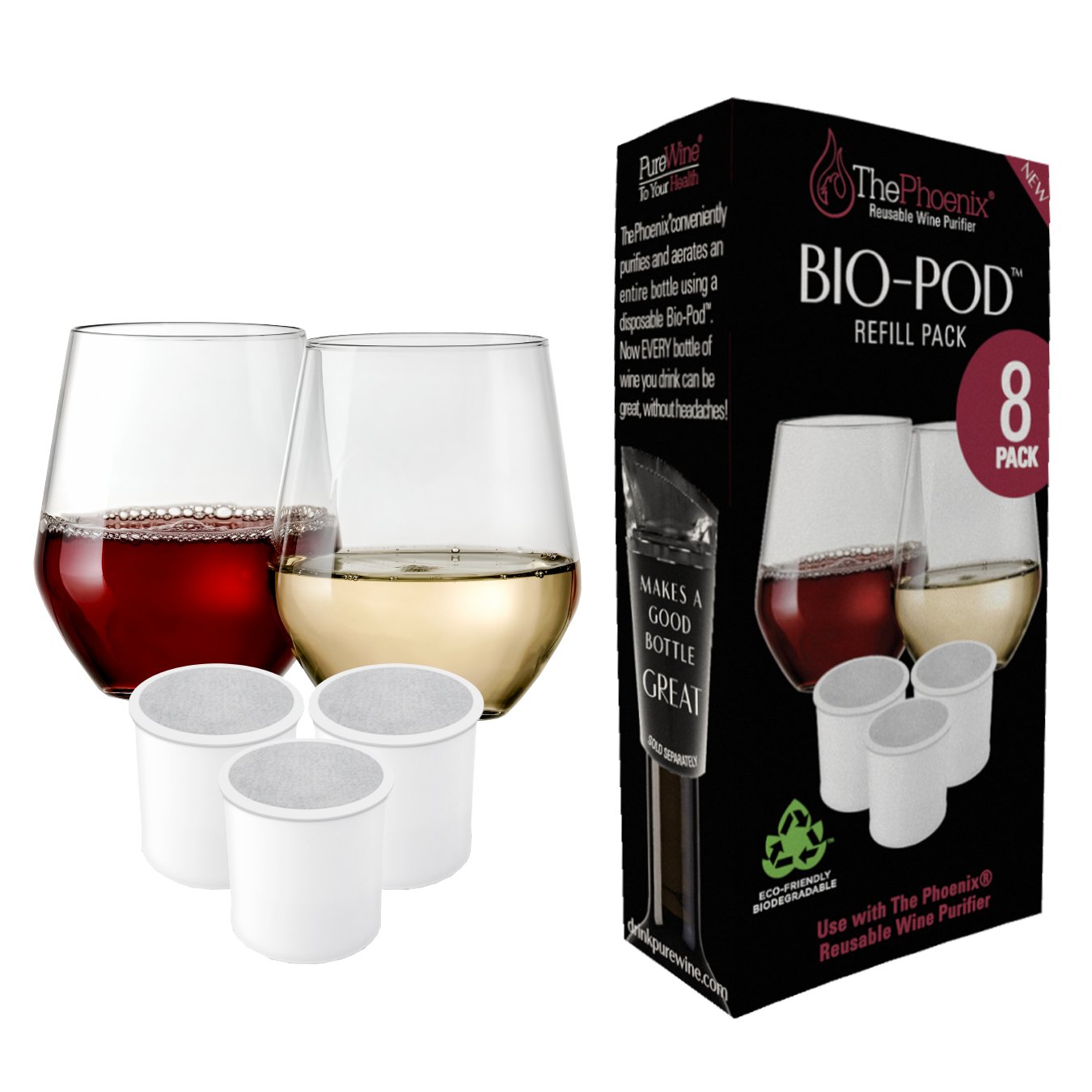
 (20 reviews)
(20 reviews)